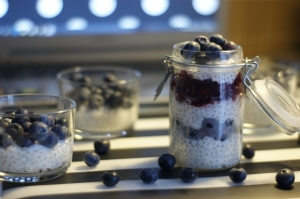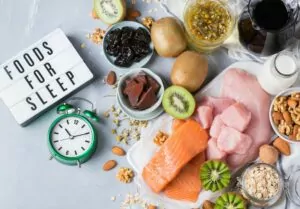6 Types of Nutrients Your Body Needs
When reading any kind of food and diet posts, you may notice that the human body needs a variety of essential nutrients to function properly. Unless you are a dietitian, you probably don’t know what types of nutrients your body should get on a daily basis. Every food contains at least 3 nutrients, though consuming lots of fruit and veggies each day gives you more essential nutrients. Why are these nutrients so important to our health? First of all, because nutrient deficiency leads to a great number of serious diseases, including heart disease and cancer. Here are the most important types of nutrients and why you need to get them regularly.
1 Vitamins
We all know that vitamins are important to our health, but are you sure you get enough vitamins? Any vitamin deficiency can ruin your health in a matter of several months, which is why you should eat more fruits and vegetables at least once a day. Vitamin B12 deficiency, for example, may cause permanent nerve or brain damage. Vitamin A deficiency can damage your eye health, while vitamin C deficiency can lead to weak immune system and deterioration of the gums. Vitamins are also crucial for your skin, hair, nails and mucous membranes.
2 Carbs
If you are trying to lose weight or you simply want to stay fit, you may believe that carbs are your worst enemies, but it’s not actually true. Many dieters face a number of health issues due to the deficiency of carbohydrates because of that belief. Sucrose, fructose, glucose, whole grains are all great sources of carbs.
Read also – 8 Most Common Health Mistakes Women Make
3 Minerals
Phosphorus, potassium, iron, calcium, iodine, fluorine, magnesium and sodium are among the most essential minerals you should be consuming more to stay healthy. Phosphorus is vital for your nervous system, bones, and teeth, while potassium is essential for the proper function of all tissues, cells, and organs in your body. Iron helps to keep your brain healthy as well as keep your cells strong and healthy, improving your immune system’s ability to combat diseases. Calcium keeps your teeth and bones healthy, magnesium improves your heart health and your energy levels, and sodium is needed for regulating fluid in your body. Watch your mineral intake to stay healthy and productive all day long and get a better sleep at night.
4 Fats
Avoiding fats is another mistake many dieters commit. Healthy fats, such as such as omega-3 fats, are essential. Your body needs healthy fats to transport, store and absorb vitamins A, E, D, and K. When cooking make sure you use unsaturated fats like olive oil, corn oil or hemp oil. When it comes to saturated fats, it’s crucial to consume them in moderation – too much may cause different diseases, including heart disease, stroke and cancer.
5 Protein
Eggs, meat, cheese, fish, tofu, lentils, beans, yogurt, seeds, and nuts are all good sources of protein. Protein helps your nerve cells to repair, plays an important role in the healing process, aids in weight loss, keeps your energy levels high, and keeps your nails and hair strong and healthy. 2 servings of protein-rich foods a day is enough to stay healthy and look better.
Read also – 8 Most Delicious Protein-Packed Snacks
6 Fiber
Fiber helps to reduce cholesterol, prevent diabetes, constipation, and improve bowel movements. Women should consume 25g of fiber a day, while men should include at least 38g of fiber in their eating plans. Some of the best fiber rich foods are brown rice, beans, whole grains, nuts, popcorn, berries, oatmeal, vegetables, fruits and chia seeds.
Losing track of your nutrient intake happens easily, especially if you live a busy lifestyle and stick to an unhealthy diet. Eating healthy is a surefire way to get all the nutrients your body needs. If you have any health issues or you often suffer from fatigue and insomnia, make sure you see your doctor to find out if you have any nutrient deficiency. Many doctors claim that most health issues happen because of nutrient deficiencies, so consider your meal plan again. Have you ever dealt with any nutrient deficiency?







